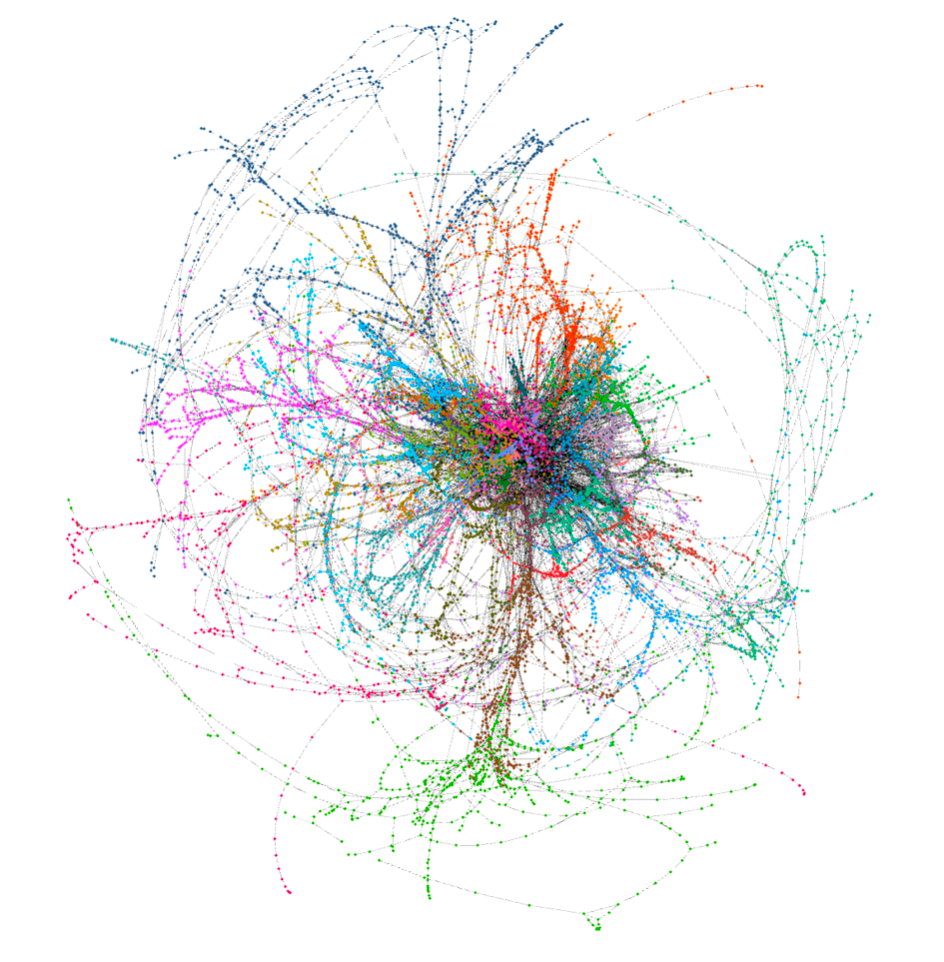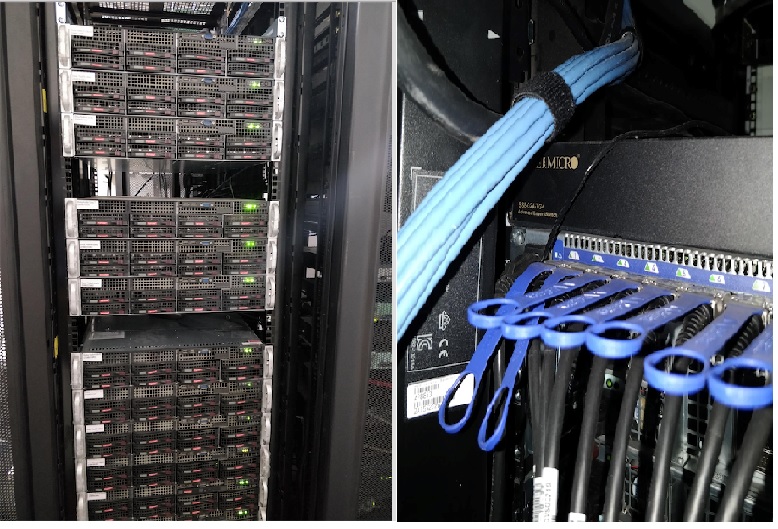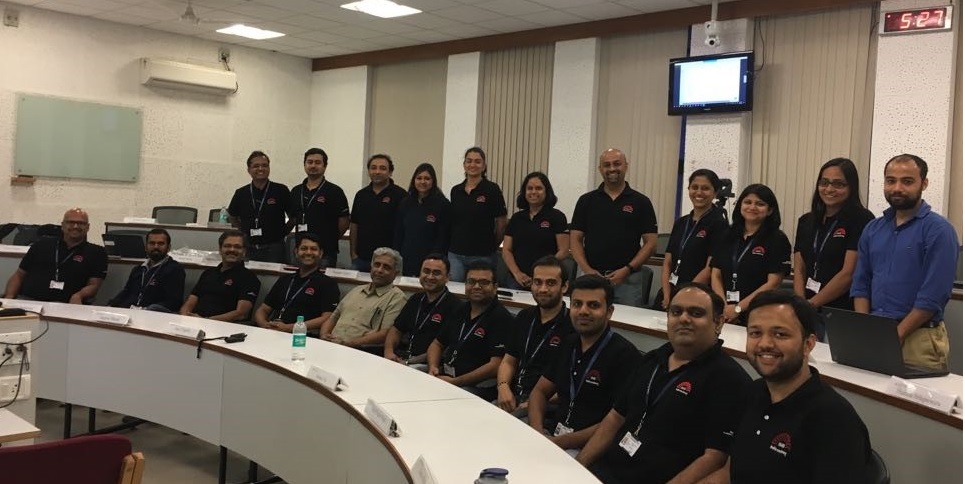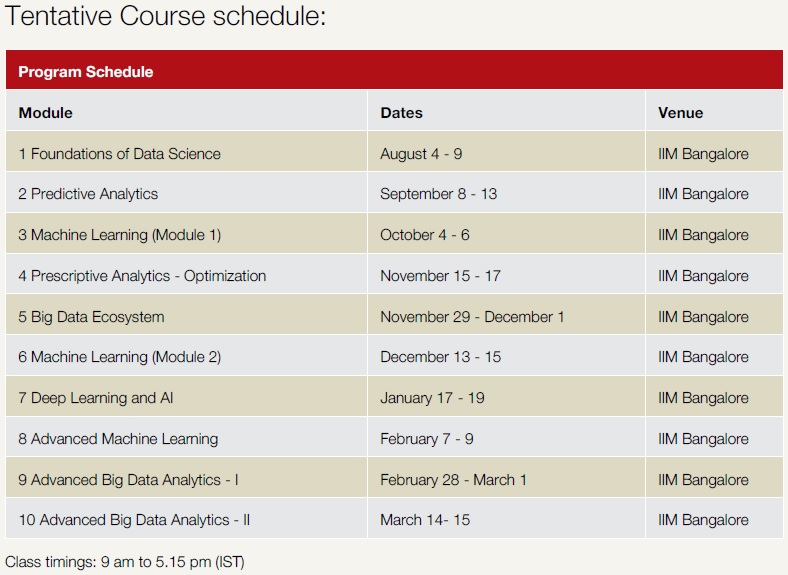Big Data Analytics (BDA - Batch 4) 
Last date for registration: 07 Jun, 2019
End Date : 15 Mar, 2020

A triad of terms captures the essence of “big data”: volume, velocity and variety. The volume and pace at which data is created can challenge existing computing infrastructure. For example, every flight of a Boeing 777 can generate up to 1 terabyte (~1000 gigabytes) of data. Making sense of this data is imperative for decision-making and troubleshooting.
Organizations large and small are forced to grapple with problems of big data, which challenge the existing tenets of data science and computing technologies. Straightforward tasks such as interpreting descriptive statistics have their share of issues. We begin to question the utility of summary measures and diagrams.
Algorithms that work well on “small” datasets crumble when the size of the data extends into the terabytes. Time series techniques must be revamped to handle streaming data in continuous time. Social media messages are unstructured, and have data formats that are unfit to be represented by traditional databases. While these may appear to be difficult problems, there has been tremendous progress in analyzing such data. Columnar databases have significantly boosted query speeds. File systems can seamlessly distribute datasets on multiple hard drives, and facilitate analytics on them in real time. Finally, the free and open source nature of big data platforms promotes their rapid adoption.

This program is designed to equip its participants with an in-depth knowledge of Big Data Analytics (BDA). The principal advantage of our program over other offerings is that IIMB houses a high performance cluster with 10+2 nodes dedicated to big data processing.
We shall use real case studies and hands-on demonstrations to illustrate the applications of key concepts. At the end of the course, the participants will be able to:
- Appreciate the emergence of business analytics and big data as a competitive strategy.
- Analyze datasets by applying techniques from statistics, operations research, machine learning, deep learning, network analysis and data mining.
- Process unstructured data such as social media messages and machine generated clickstream logs.
- Have a working knowledge of languages, platforms and tools that support statistical analysis and visualization (R/Python), distributed computing (Hadoop/Spark) and network analysis (Gephi).
- Apply the theories, techniques and tools to solve problems from industry sectors such as manufacturing, services, retail, software, banking and finance, sports, pharmaceuticals, and aerospace.

This certificate program will equip the participants with a large suite of analytical tools, as well as prepare them for corporate roles in analytics based consulting in marketing, operations, supply chain management, finance, insurance and general management in various industries. The course is suitable for those who are already working in analytics, and wish to enhance their knowledge. We also welcome participants with a strong analytical aptitude, who would like to start their career in analytics.
Eligibility Criteria
The participants should have a Bachelors degree in engineering/science/commerce or arts with mathematics as one of the subjects during their Bachelors program. Preferable work experience is 3 years, in exceptional cases applicants with less than 3 years are admitted into the program. It is essential that the applicants have programming knowledge.
Selection Process
After submitting their applications online, candidates shall be short-listed for an online test. Questions on the online test will examine the candidate’s grasp of basic quantitative concepts. As prior preparation, the candidates are suggested to enrol in a beginner edX course dedicated to Statistics and complete the exercises:
https://www.edx.org/course/statistics-business-i-iimbx-qm101-1x-0
Based on a combination of the test score, past academic performance, quality of work experience and fit for an analytics career, candidates will be called in for a face-to-face interview. The online test and interviews will be conducted in succession during June 2019.
Click here to view the sample BDA question paper.
Professor U Dinesh Kumar
http://www.iimb.ac.in/user/62/dinesh-kumar
Professor Shankar Venkatagiri
http://www.iimb.ac.in/user/139/shankar-venkatagiri
Professor Pulak Ghosh
Module 1: Foundations of Data Science
Learn how to summarize, analyze, and interpret data, as well as to communicate the results using data visualisation. Two key platforms for machine learning: R and Python.
Module 2: Predictive Analytics
Understand how regression and causal forecasting models can be used to analyse real-life business problems such as prediction, classification and discrete choice problems.
Module 3: Machine Learning (Module 1)
Get acquainted with a variety of supervised and unsupervised methods, and recommender systems.
Module 4: Prescriptive Analytics: Optimisation
Construct mathematical models for managerial decision situations and use freely available Excel Solver and OPL to obtain solutions and interpret the results.
Module 5: Big Data Eco-system
Use Spark/Hadoop extensively to set up and solve problems involving large datasets.
Module 6: Machine Learning (Module 2)
This module introduces the participant to machine learning algorithms such as bagging and boosting, recommender
systems, clustering, text analytics, spatio-temporal analysis, association rule mining and Neural Networks.
Module 7: Deep Learning and AI
Familiarise with neural networks and deep learning frameworks such as TensorFlow and GraphLab.
Module 8: Advanced Machine Learning
Study ensemble methods and penalised regression, clustering, text analytics, spatio-temporal analysis, association rule mining and Monte Carlo simulation.
Module 9: Advanced Big Data Analytics I
The participant is introduced to advanced regression and dimension reduction techniques.
Module 10: Advanced Big Data Analytics II
Bayesian approach to big data, blockchain and policy.
Programme Fee*:
The programme fee is Rs. 6,25,000/-+ GST (applicable rates) per participant, payable in three installments as per the following schedule.
Rs. 2,50,000/- + Applicable GST : I installment on admission
Rs. 2,50,000/- + Applicable GST : II installment on or before 04 November 2019
Rs. 1,25,000/- + Applicable GST : III installment on or before 02 January 2020
Please Note: *Please add GST at prevailing rates to the programme fee.
All enrollments are subject to review and approval by the programme director. Joining Instructions will be shared with the organization if sponsored or to the participants on selection.
Kindly do not make your travel plans unless you receive the offer letter from IIMB.
Note :
- The programme fee should be received at the Executive Education Office, before the programme commencement date.
- In case of withdrawls, the fee will be refunded only if a request is received at least 15 days prior to the start of the programme.
- If a nomination is not accepted, the fee will be refunded to the person / organization concerned.


![]()
